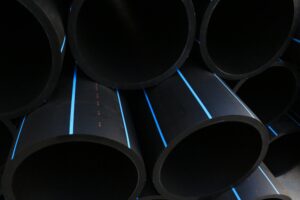The Importance of Warehouse Cleaning for Optimal Business Operations

In any business, maintaining a clean and organized workspace is crucial for efficiency, safety, and overall productivity. However, when it comes to large-scale operations, such as those within a warehouse, the importance of warehouse cleaning cannot be overstated. A warehouse is more than just a storage space; it is a critical hub in the supply chain where goods are received, stored, and shipped. Therefore, ensuring that the warehouse environment is clean and well-maintained is vital to the smooth functioning of any business relying on such a facility.
Why Warehouse Cleaning Is Essential
There are several reasons why warehouse cleaning should be a priority for any business:
- Safety: A cluttered and dirty warehouse poses significant safety risks. Spills, debris, and dust can lead to accidents, such as slips, trips, and falls, which can result in injury to workers. Regular warehouse cleaning reduces these hazards by keeping the environment free of obstructions and contaminants.
- Efficiency: A clean warehouse is an efficient warehouse. When the space is well-organized and free of unnecessary clutter, workers can move about more easily, and products can be located and retrieved more quickly. This leads to faster processing times and increased productivity.
- Inventory Management: Cleanliness plays a crucial role in effective inventory management. Dust and dirt can damage goods, especially those that are sensitive or perishable. Regular warehouse cleaning helps protect inventory from contamination, ensuring that products remain in good condition until they are shipped to customers.
- Compliance: Many industries have strict regulations regarding cleanliness and hygiene, especially those dealing with food, pharmaceuticals, and other sensitive products. Warehouse cleaning is essential to meet these regulatory standards and avoid costly fines or shutdowns.
- Employee Morale: A clean and well-maintained workplace contributes to a positive working environment. Employees are more likely to take pride in their work and perform better in a tidy, organized space. Regular warehouse cleaning also shows that the company values the health and safety of its workers, which can boost morale and reduce turnover.
Key Areas of Warehouse Cleaning
Effective warehouse cleaning involves more than just sweeping the floors. Here are some key areas that should be addressed:
- Floors: The warehouse floor is one of the most critical areas to keep clean. Dust, dirt, and debris can accumulate quickly, leading to a range of problems, including safety hazards and damage to equipment. Regular sweeping, mopping, and scrubbing of floors are essential components of warehouse cleaning.
- Shelving and Racking: Shelving and racking systems can collect dust and grime over time, especially in hard-to-reach areas. Regularly cleaning these structures not only improves the appearance of the warehouse but also ensures that products stored on them are kept in optimal condition.
- Equipment: Warehouse equipment, such as forklifts, pallet jacks, and conveyors, should be regularly cleaned and maintained to ensure they operate efficiently. Dust and dirt can cause mechanical problems and reduce the lifespan of this equipment, making warehouse cleaning of machinery an important task.
- Loading Docks: Loading docks are high-traffic areas where dirt and debris can accumulate quickly. Keeping these areas clean is crucial for maintaining a safe working environment and ensuring that goods are loaded and unloaded efficiently.
- Air Quality: Dust and airborne particles can be a significant issue in warehouses, especially those dealing with bulk goods or materials that generate dust. Regular warehouse cleaning should include measures to control dust and improve air quality, such as using industrial vacuums and air purifiers.
- Restrooms and Break Areas: While not directly related to the storage and handling of goods, restrooms and break areas should not be neglected during warehouse cleaning. These areas are used by employees and should be kept clean to maintain hygiene and prevent the spread of illness.
Best Practices for Warehouse Cleaning
To achieve the best results, warehouse cleaning should be approached systematically. Here are some best practices to consider:
- Develop a Cleaning Schedule: Regular cleaning is key to maintaining a clean warehouse. Develop a cleaning schedule that outlines daily, weekly, and monthly tasks, ensuring that all areas of the warehouse are cleaned consistently.
- Use the Right Tools and Equipment: The size and nature of a warehouse require specialized cleaning tools and equipment. Industrial sweepers, scrubbers, and vacuums are often necessary to effectively clean large spaces. Additionally, using appropriate cleaning agents is important to address specific types of dirt and grime.
- Train Employees: Cleaning should not be the sole responsibility of a designated cleaning crew. All employees should be trained in basic warehouse cleaning practices, such as cleaning up spills immediately and keeping their work areas tidy. This collective effort helps maintain a clean environment at all times.
- Implement Waste Management Practices: Proper waste management is a critical component of warehouse cleaning. Ensure that there are adequate waste bins located throughout the warehouse, and that waste is regularly collected and disposed of. Recycling programs can also be implemented to reduce the amount of waste generated.
- Monitor and Review: Regularly monitor the effectiveness of your warehouse cleaning practices and make adjustments as needed. Conducting periodic inspections can help identify areas that require more attention and ensure that cleaning standards are being maintained.
The Role of Professional Warehouse Cleaning Services
While in-house cleaning efforts are important, many businesses choose to hire professional warehouse cleaning services to ensure that their facilities are thoroughly and consistently cleaned. These services offer several advantages:
- Expertise: Professional cleaning companies have the expertise and experience to handle the unique challenges of warehouse cleaning. They are familiar with industry standards and regulations and can ensure that your warehouse meets all cleanliness requirements.
- Specialized Equipment: Professional cleaners have access to specialized equipment and cleaning agents that may not be available to in-house staff. This allows them to perform more thorough and efficient cleaning.
- Time Savings: Outsourcing warehouse cleaning allows your employees to focus on their core tasks, rather than spending time on cleaning duties. This can lead to increased productivity and better use of resources.
- Consistency: Professional cleaning services follow a set schedule and maintain high standards of cleanliness. This consistency helps ensure that your warehouse remains clean and organized at all times.
Conclusion
Warehouse cleaning is a critical aspect of maintaining a safe, efficient, and productive business operation. By prioritizing cleanliness, you can protect your inventory, ensure the safety of your employees, and improve overall efficiency. Whether you handle cleaning in-house or hire professional services, it is essential to develop and implement a comprehensive warehouse cleaning plan that addresses all areas of your facility. By doing so, you will not only meet regulatory requirements but also create a working environment that supports the long-term success of your business.





